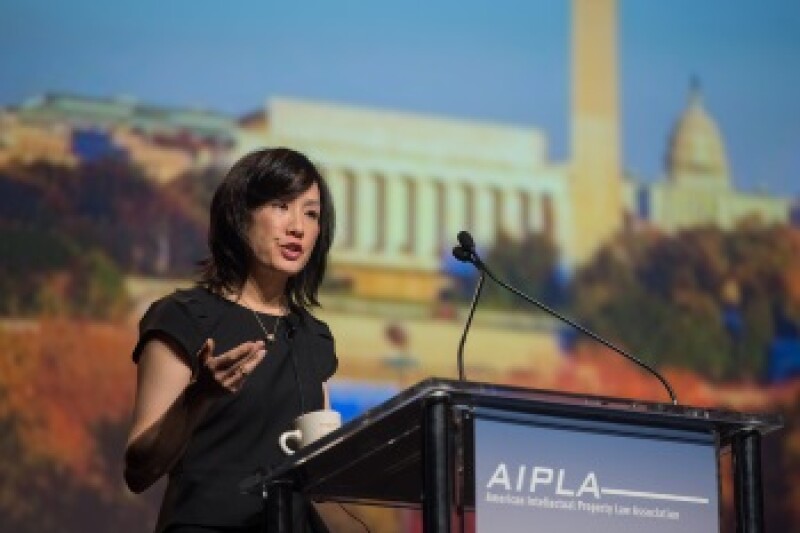
In the 2013 fiscal year, more than 8,550 USPTO employees were working from home at least one day a week, representing 72.6% of the agency’s workforce. The Washington Post recently ran a series of reports charging that there is a “culture of fraud” at the USPTO and that some employees using the work-from-home program lied about their work hours and were conducting personal business on company time. The Commerce Department’s Inspector General has also issued a report on the telework program.
Lee noted the telework program was “award-winning” and had allowed the agency to more than double the number of patent examiners since 2005 without increasing the office space.
“No program is perfect, and the USPTO’s telework program is no exception,” Lee told attendees. “Recent events have helped shine a light on areas where our telework program can be improved. We’ve already moved forward with a number of concrete steps to bolster the management of the telework program to ensure the integrity of our operations. These actions will help ensure this incredibly valuable program continues to provide enormous value to our agency, your clients, and the American people.”
In a Q&A with AIPLA President Wayne Sobon after her speech, Lee provided more details on how the USPTO is responding.
“I take the opportunity to improve our telework program very seriously,” she said. “It is critical to the agency, its future success, to our stakeholders, to reducing our backlog and pendency, and increasing quality. So it is critical we get this right.”
She continued: “We are in the process of bringing in a third-party auditor to review our total program and to review our controls. We’ve also standardized the procedures by which records can be used in investigating an alleged misconduct. We have also put together two cross-bureau teams to look at the issues of curtailing abuse and intervening early and review the entire misconduct process to make sure our policies are applied consistently.”
During her speech, Lee outlined the USPTO’s priorities, the most important of which is patent quality: “For too long, due to uncertain budgetary conditions and limited resources, the USPTO has had to make do with less.” No longer, according to the Deputy Director of the USPTO, who last week was nominated by President Obama to become Directory of the Agency.
Lee continued that the USPTO can now focus on building its workforce and the tools needed for a world-class patent quality system. Peggy Focarino, USPTO Commissioner for Patents, at the most recent Patent Public Advisory Committee meeting outlined the agency’s new Patent Quality Initiative, the initial results of which will be rolled out early next year,
“Let me give you a brief preview today,” said Lee. “This new initiative is built around three core elements: excellence in prosecution products and services; excellence in customer service; and excellence in measurement of quality. I’ve asked that teams of employees from across the agency – from examiners to IT staff to policy experts – be put together to take a hard look at patent quality from every angle. We’re considering all options – big and small – before examination, during examination, and after examination.”
This includes upgrading IT tools for examiners and increasing resources to improve patent examination quality by expanding focused reviews of examiner work products.
The USPTO is also comparing best practices and collaborating to improve quality with foreign counterpart offices and using big data techniques to measure and improve every stage of the examination process. “We collect a lot of data during the examination process, but we haven’t had the resources to fully capitalize on its potential,” said Lee. “Now we do.”
The USPTO has reduced the backlog of unexamined patent applications from a high of over 750,000 in January 2009 to about 600,000 as of September 22 of this year. “That’s a decrease of more than 17%, despite an average 5% increase in filings every year since 2010,” said Lee.
Lee also noted that the USPTO will not be issuing a final rule on Attributable Ownership, citing mixed reviews from stakeholders. She said that rather than the USPTO taking the lead on this matter, the Office will defer to Congress to legislate in this area as needed.









